
Freshfel Europe Headlines – Edition 4, 2023
Freshfel Europe’s Headlines publication provides an overview of the Association’s most recent activities.
For more information about Freshfel Europe’s activities please contact the Freshfel Europe Secretariat.


New Nordic nutritional recommendations are welcomed by Freshfel Europe
Freshfel Europe welcomes the new nutritional guidelines for a healthier diet by the Nordic Ministerial Council, published in June this year. The Council sets dietary guidelines and nutrition recommendations in the Nordic and Baltic countries. This latest version of Nordic Nutrition Recommendations (NNR) are based not only on nutritional value and what is good for our health but also on what is good for the environment. According to the NNR, it is 500 to 800g (or more) of a variety of berries, fruits and vegetables that is recommended to consume daily. This means that for a sustainable diet, one should forget the often-cited minimum intake of 400g/day and start to be more ambitious.
A predominantly plant-based diet high in vegetables, fruits, berries, pulses, potatoes and whole grain nuts is recommended with a moderate intake of low-fat dairy products and limited intake of red meat, poultry, processed meat, alcohol, and processed foods containing high amounts of fats, salt and sugar. Those recommendations are still far from the European reality, where fresh produce consumption is stuck at 364g/day, according to the latest Freshfel Consumption Monitor.

Freshfel Europe provides input on the future of Promotion Policy and the 2024 Annual Work Programme
Following the recent Civil Dialogue Group on Promotion and Quality and considering the request for updated contributions to finalise the 2024 Annual Work Programme (AWP), Freshfel Europe provided additional views to the Commission services on some matters of great importance for the efficient functioning of the EU promotion policy. The promotion and information policy is of the highest relevance for the sector to stimulate consumption, position sustainable and high-quality fresh fruit and vegetables in the food assortment and move towards the goals of the Green Deal, the Farm to Fork and the EU beating cancer plan.
Currently, the sector is concerned about the initial views and the then draft AWP presented by the European Commission, and communicated to the Commission four major lessons that Freshfel Europe means should be learned from the previous work programme.
First, there must be an earlier adoption of the, allowing partners to coordinate and negotiate well in time. Second, the decline in the overall number of proposals by 24% since 2022 indicates that there is in general less confidence in the policy. Third, there is a disconnection between political priorities and market reality, noticeable mainly through the low interest in organic calls. Fourth, the new, stricter, interpretation of the continuity rule has led to decreased outreach from the fruits and vegetables sector, something Freshfel Europe warned the European Commission of in earlier communications.
To reverse this negative trend, Freshfel Europe outlined in its communication to the European Commission concrete proposals on budget reallocation, emphasising that the budget should be adjusted according to market expectations. Freshfel Europe also took the opportunity to urge the Commission to finalise, at the earliest possible time, its proposal for the upcoming policy reform, incorporating a clarification on the provision of continuity.

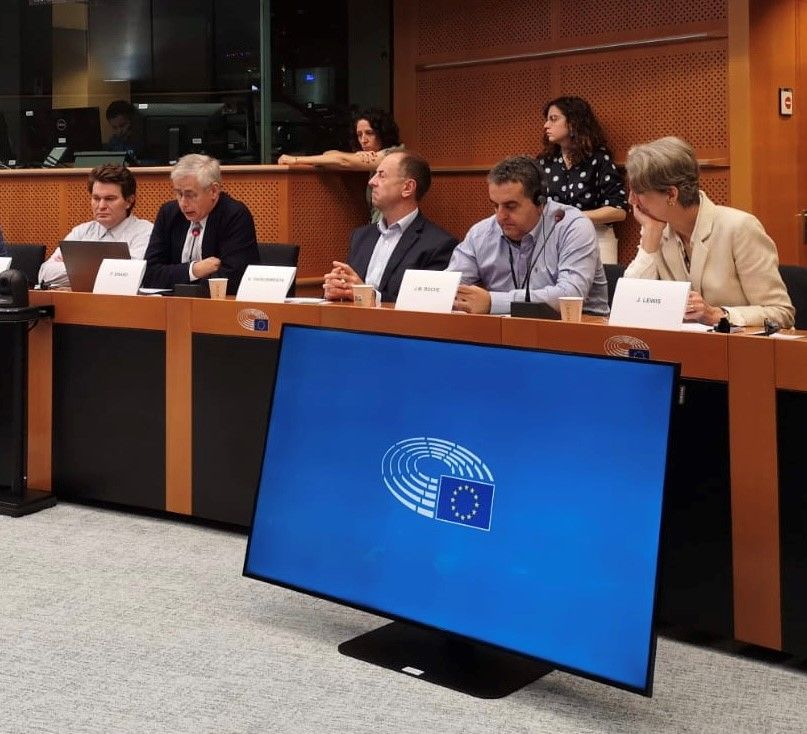
Freshfel Europe voices perspective of the fruit and vegetable sector on the Sustainable Use Regulation (SUR) at hearing in the European Parliament
In July, Freshfel Europe’s General Delegate Philippe Binard took part in a Parliamentary hearing on SUR. As part of the EU Agrifood chain delegation, he reminded that while environmental and social components of sustainability have already been high on the fruit and vegetable sector’s agenda for two decades, resulting in great achievements, the economic sustainability of the supply chain should not be disregarded, and the productivity and competitiveness of European growers must be secured. In times of rising production costs, further investments are needed to cope with sustainability requirements, adapt to societal concerns and boost consumption. While climate change is significantly impacting growing conditions, an efficient toolbox is needed to reduce pests and diseases in orchards and fields.
The journey towards more precise agricultural practices and modern IPM with progressive availability of alternative bio-substances needs to be made in a timely manner and within a soft transition not governed by rigid reduction of usage targets. In turn, sound production will facilitate safe trade, consumer confidence in quality and safety, and provide more opportunities for EU exports. Fruit and vegetables are essential in the food chain and part of the solutions of the Green Deal and the Farm to Fork.

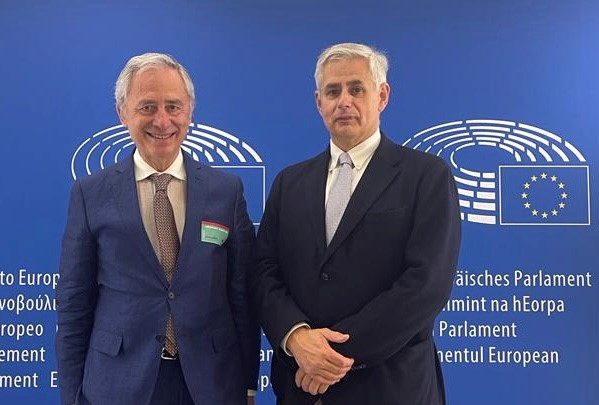
Freshfel Europe continues the conversation on new packaging legislations in the EU
Freshfel Europe persists in its advocacy for packaging solutions and policies that provide sustainable and well-functioning outcomes. In light of the ongoing revision of the Packaging and Packaging Waste Directive (PPWR) Freshfel representatives have engaged with the European Institutions to clarify the perspective of the fruit and vegetables sector. Freshfel Europe’s President Salvo Laudani travelled to Brussels in July to emphasise the high functionality and added value of packaging to fruits and vegetables at a hearing at the European Parliament, hosted by MEP Giuseppe Ferrandino and organised by Freshfel member Ortofrutta Italia. In June, Policy Advisor on Sustainability and International Affairs Joanna Nathanson also presented this perspective in the European Parliament at an event organised by the Permanent Representation of Italy to the EU. To this, Freshfel Europe has conducted outreach activities with the European Council and the Swedish presidency, as well as with other Organisations and Associations.
The progress of national transpositions of the Single-Use Plastics Directive has also been an area where Freshfel Europe is taking active action. In the last months, both Luxembourg and France have taken significant steps in the implementation of a ban on single-use plastic packaging for fruits and vegetables, with the restrictions coming into force in July 2023. Due to the lack of clear communication on these legislative changes, they have impacted operations in the short term, for instance leading to limited selections of products as the infrastructure for this new situation has not had time to develop fully. Several national implementations of the SUPD have been postponed awaiting the outcome of the proposal on the Packaging and Packaging Waste Regulation, as this would harmonise packaging solutions across the EU, facilitate the smooth flow of products on the internal market and decrease food and packaging waste. By implementing national restrictions on the use of single-use plastics before the outcome of the PPWD discussion is known, the incentive to invest in alternative packaging materials is stalled, and risks turning the period between SUPD and PPWR into a static landscape for packaging solutions, with detrimental effects on the quality and availability of fresh fruits and vegetables.

Sharing the perspective of the fresh produce sector on substantiation of ‘green claims’
Freshfel Europe has shared its perspective on the European Commission’s proposal for a regulation on the substantiation of environmental claims, more commonly known as ‘the Green Claims Directive’. The proposal aims to tackle greenwashing by making it a requirement for business operators to substantiate their environmental claims, meaning that any green claim will have to be confirmed and demonstrated. This will increase consumer trust and allow people to make correctly informed choices about their purchases.
Fresh fruits and vegetables are at the center of sustainable diets. With high nutritional values and a small environmental footprint, the fresh produce sector has many ‘green’ assets to declare to the public, empowering consumers to move towards healthy and sustainable diets. The current proliferation of environmental labels and claims has undermined consumer trust and so Freshfel Europe welcomes this initiative and the move towards harmonisation and common rules which will facilitate for good functioning of the Single Market.
Freshfel Europe, together with some of its members and Wageningen University & Research, has embarked on an Environmental Footprint Initiative for fresh produce, which could ultimately ensure that all green claims on fresh fruits and vegetables are comparable, reproducible and verifiable. The development of such methodologies, PEFCRs, should be encouraged within product categories to increase the standardisation and reliability of green claims.
The fresh produce sector has a good sustainability story and looks forward to sharing it with the public and raising reliable awareness of the value of fresh produce to consumers. With a packaging legislation coming up, which aims at pushing for bulk sales it risks significantly limiting the possibilities of fresh produce labelling and sharing of information to consumers. The nice story of fresh fruits and vegetables might be missed, while other food categories not restricted by packaging policy are able to tell theirs.
It is the hope of Freshfel Europe that policy makers find the right balance and coherence to strengthen fresh fruit and vegetables as part of the solutions to the Green Deal and Farm to Fork and not discriminate opportunities in the story telling among food categories.

Corporate Sustainability Reporting for the fruits and vegetables sector
The fresh fruit and vegetables sector aims to approach the EU Corporate Sustainability Reporting Directive (CSRD) in a united front. Freshfel Europe is serving as the platform to bring affected, and soon to be affected, companies together to see what collaborative measures can be taken to minimise individual administrative and financial costs while maximising reporting quality and coverage.

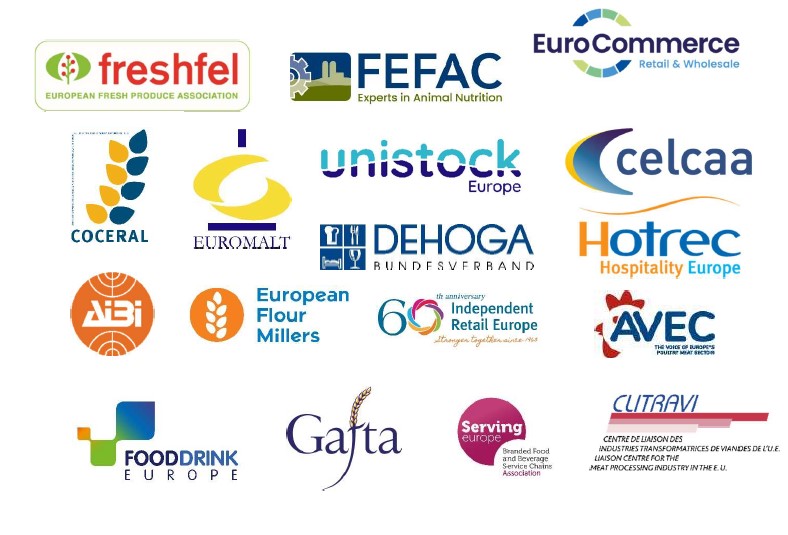
Joint letter on rodenticides brings together 17 organisations and associations
In June, the Standing Committee on Biocidal Products discussed the use of anticoagulant rodenticides biocidal products, and the prospect of using mechanical options instead. Understanding that this discussion might put into question the market access of such rodenticides, Freshfel Europe, along with 17 other associations and organisations, sent a joint letter to Mr Klaus Berend, acting director of DG SANTE in the European Commission.
The letter pointed out that rodent management is an important aspect of hygiene management on multiple levels of the food supply chain. In order to cope with these hygiene requirements, access to proper management tools is required, and a lack of such would create severe hygiene issues in the food chain. The proposition that mechanical trapping would be a sufficient alternative is not based on sufficient science-based grounds and needs to be further analysed before being considered.
The European Commission responded that no ban of such rodenticides is not being considered at this time, and that once that day comes, more studies and assessment will have been conducted.


The fresh produce sector comments on the EU Framework for a Sustainable Food System
As the European Commission is finishing its final preparations to publish their proposal for a Framework for a Sustainable Food System (FSFS), an ad-hoc meeting of the Advisory Group, of which Freshfel Europe is part, was called in order to allow stakeholders to provide their final inputs ahead of the publication of the proposal. The proposal will attempt to put in legal definitions various elements of sustainability, including economic, social and environmental sustainability, as well as sustainable diets. It also sets out a framework of objectives and principles through which all food-related policies will be viewed in order to mainstream sustainability in food policy. Freshfel Europe is in the last stages of communications with its members and will be sharing the comments from the fresh produce sector to the European Commission to ensure a well-prepared draft proposal at a later stage.

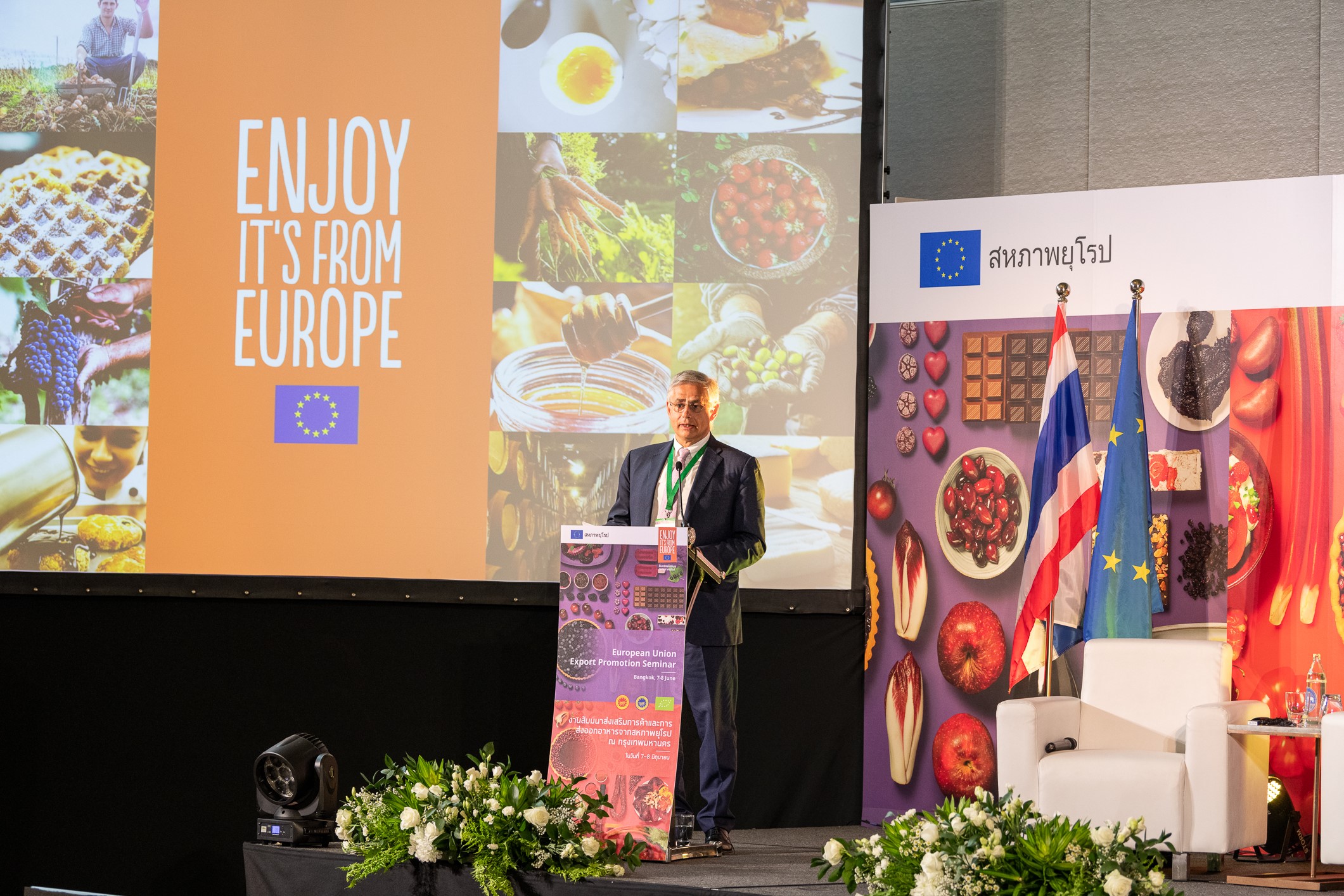
Freshfel Europe takes part to the economic diplomacy workshop on agrifood exports to Thailand
On 7 -8 June Freshfel Europe’s General Delegate took part of an EU business delegation to the seminar on EU standards for agri-food products organized by the European Commission, as part of its smart economic diplomacy strategy. The theme of the two-day event covered different aspects of regulatory and business perspectives including looking at opportunities and challenges of EU-Thai trade relations, an education programme for Thai customers on EU food safety, plant health, safe and sustainable trade of plant products and the organic farming opportunities for international trade. As part of the programme a dedicated business focus workshop on fruit and vegetables took place under the lead of Freshfel Europe, which attracted more visitors than any of the other themed agrifood workshops.


Freshfel Europe meets with Vietnamese officials to discuss plant health and market access
Freshfel Europe’s team met with a delegation of Vietnamese officials on 30 June to discuss plant health as well as market access issues at the request of the Vietnamese authorities, who were interested in better understanding the work of EU authorities, stakeholders as well as the way in which EU legislation operates in practice.
In the meeting, the possibilities for boosting the use of cold treatment were discussed in detail, and Vietnamese officials explained that there would need to be a significant investment to build cold chain storage and cold treatment infrastructure in the country in order to facilitate cold treatment in the country, but that they were willing to undertake it provided they could receive funding or cooperate with EU authorities to do so.
Moreover, specific instances of the use of cold treatment for some EU fruit exports to the country were discussed, and while officials were amenable to Freshfel arguments, they pointed out difficulties with some of the varieties in relation to the lists of applicable quarantine pests.

Freshfel Europe sends letter to Commission to highlight new Egyptian import requirements
In reaction to the Egyptian decision to introduce a new 10% “customs tax” on a number of imported goods, including fresh fruit and vegetables, among other revenue-raising measures, Freshfel Europe sent a letter to the European Commission in July to draw their attention to the impact of the measure on the sector. In its letter to the authorities, Freshfel Europe drew attention to the potential impact the measure could have on European exports to one of the main imports of European fresh produce in the world, particularly in the wake of the elimination of previous trade barriers like the letters of credit, the impact of which the sector is still recovering, as additional costs could add up to over 21 million euro.
Freshfel Europe interpellated the Commission on the legality of the measure, since in Freshfel Europe’s view, it breached the terms of the EU-Egypt association agreement indirectly, as although a customs tax would not constitute a tariff per se, it acted as one. Freshfel Europe asked the EU authorities to dialogue with their Egyptian counterparts to understand the impact and scope of the new measures and to stress that fresh fruits and vegetables do not constitute luxury goods but basic consumption goods, without which a health and balanced diet is largely unachievable, and which should continue to be as affordable and attractive as possible for Egyptian consumers. Freshfel Europe also requested that the Commission monitor closely the implementation of the EU-IMF agreement, as one of its conditions was that Egypt would cease the application of import barriers by blocking importers’ access to foreign currency.

Freshfel Europe addresses letter to Commission on new Saudi import certificates
Following its notification by Saudi Arabia of its proposal for a new import certificate combining both food safety and phytosanitary aspects, the European Commission requested input from stakeholders prior to engaging with their Saudi counterparts. Freshfel Europe argued that the proposed certificate would breach international norms, including the IPPC’s, by mixing both elements of a ‘proper’ phytosanitary certificate and a certificate for processed foods and other non-SPS issues more related to food quality, which could, on top of the complexity of the document, require more than one governmental body to certify, adding additional expenses and time delays for any application.
Therefore, Freshfel Europe recommended to the Commission to ask the Saudi to split the document, on plant health to make the phytosanitary certificate IPPC guideline-compliant, while addressing food safety issues separately and in a simplified manner. On MRLs and HACCP, Freshfel asked that given the mutual equivalence of MRLs and the HACCP certification system in place in the EU, no systematic testing be required, and instead a system of self-attestation by private operators be instituted. Finally, Freshfel also requested the Commission to ask the Saudi authorities to clarify the current wording on microbiological criteria for pre-cut fresh produce.The Commission took these comments, together with those from other stakeholders, and raised them in late July with their Saudi counterparts, who agreed in principle to split the phytosanitary certificate from the food safety one and promised to share with the Commission a revised certificate or certificates incorporating the EU comments.

Freshfel Europe presents list of pressing SPS market access issues for the sector
Freshfel Europe’s team delivered, during a meeting of DG Trade’s SPS Market Access Working Group held on 22 June, a presentation showcasing the main issues that continue to plague European fresh fruit and vegetable exporters to other parts of the world, putting particular emphasis on the existing SPS barriers. In its presentation to the Commission, Member State representatives and other stakeholders, Freshfel continued to argue that the general IPPC principles for PRAs and SPS barriers to trade continue to be ignored or interpreted in an overly-protectionist manner.
In its stead, Freshfel Europe reiterated its position in favour of a global regime to establish clear rules for PRA processes as a way to establish a fair and levelled market across the world. Moreover, Freshfel Europe also presented a list of specific market access priorities and concerns for the sector, both concerning the countries with which the EU is currently negotiating a free trade agreement, like Australia or India, as well as various other third countries. In the presentation, it was highlighted that the undue delay in the processing of PRA applications was a particularly serious problem, with market access applications pending, in some cases, for over a decade, which affected countries trading with the EU, regardless of the existence of a free trade agreement.


Freshfel Europe and PROFEL join forces in a call for action on the impact of climate change on fruit and vegetables
In the coming weeks, Freshfel Europe and Profel will join forces to exchange with the EU’s decision and policy makers at the Commission, Council and European Parliament on the impact of climate change on fruit and vegetable production and the need for on-going actions and support from authorities to mitigate and adapt to the changing production environment. The perspective and call for action elaborated on by both associations raised important issues such as the future availability of a range of fruit and vegetable crops in several growing areas across the European Union. The recent climatic events have had far-reaching consequences on production for this essential sector which provides highly nutritious foods with widely recognised health benefits, produced with a low environmental impact.
Climate change is multi-faceted, with varied, wide-reaching implications and consequences which demand multiple adaptations and major investments. The increase in temperature alters both crop and insect phenology resulting in a proliferation of new pests and diseases creating new challenges for protecting crops. Climate change also brings implications for the product itself through its severe impact on crop growth and by creating greater volatility in harvest date; it also impacts on product quality regarding colour, sunburn and shadowing, maturation, mineral and sugar content, etc.
The fruit and vegetable sector is proactive and responding to these changes but policy makers must help and support the sector. Public-private partnership is needed: The fruit and vegetable industry is at a delicate crossroads which will require close cooperation and partnership between public and private sector to review strategies and future direction in order to adapt and respond to the challenge in the most efficient manner possible.

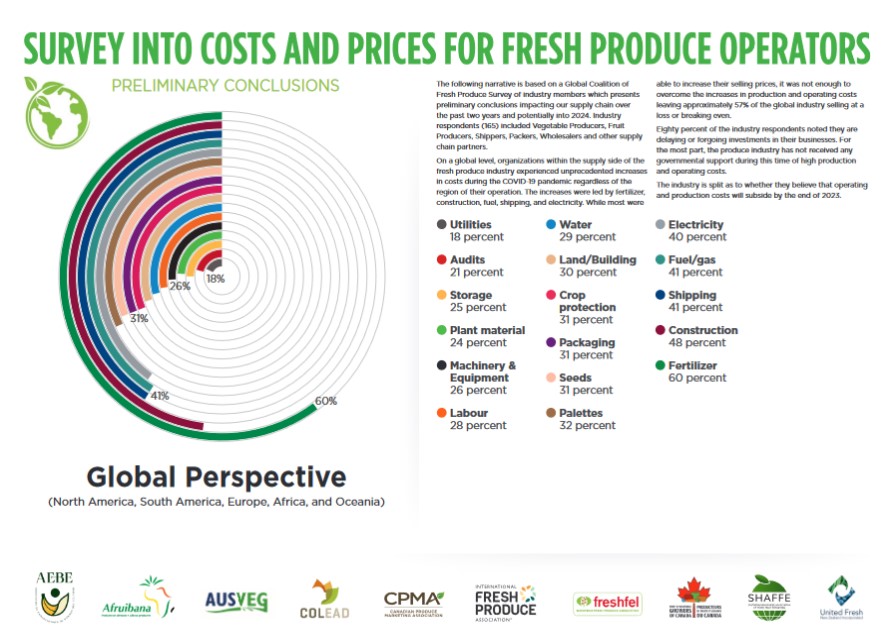
The Global Coalition of Fresh Produce releases a report on the costs of production in fresh fruit and vegetable value chains
The Global Coalition of Fresh Produce, of which Freshfel Europe is part, has released a preliminary report on the costs of production of the last years. This report was conducted to shed light on the challenges experienced by the fresh produce sector worldwide. The Coalition gathers representative fresh produce associations from Africa, Asia, North America, South America, Oceania and Europe, giving the Coalition a truly global reach.
The newly published report shows that suppliers in the fresh produce value chain have experienced unprecedented increases in costs, regardless of region of operations. While selling prices have increased in all regions included in the report, it was not enough to overcome the increases in production and operating costs, leaving approximately 57% of the global industry selling at a loss or breaking even. This has severely hampered the sector’s ability to invest in for instance equipment and innovation, and might cause a delayed capability to respond to the effects of climate change currently impacting harvests worldwide.

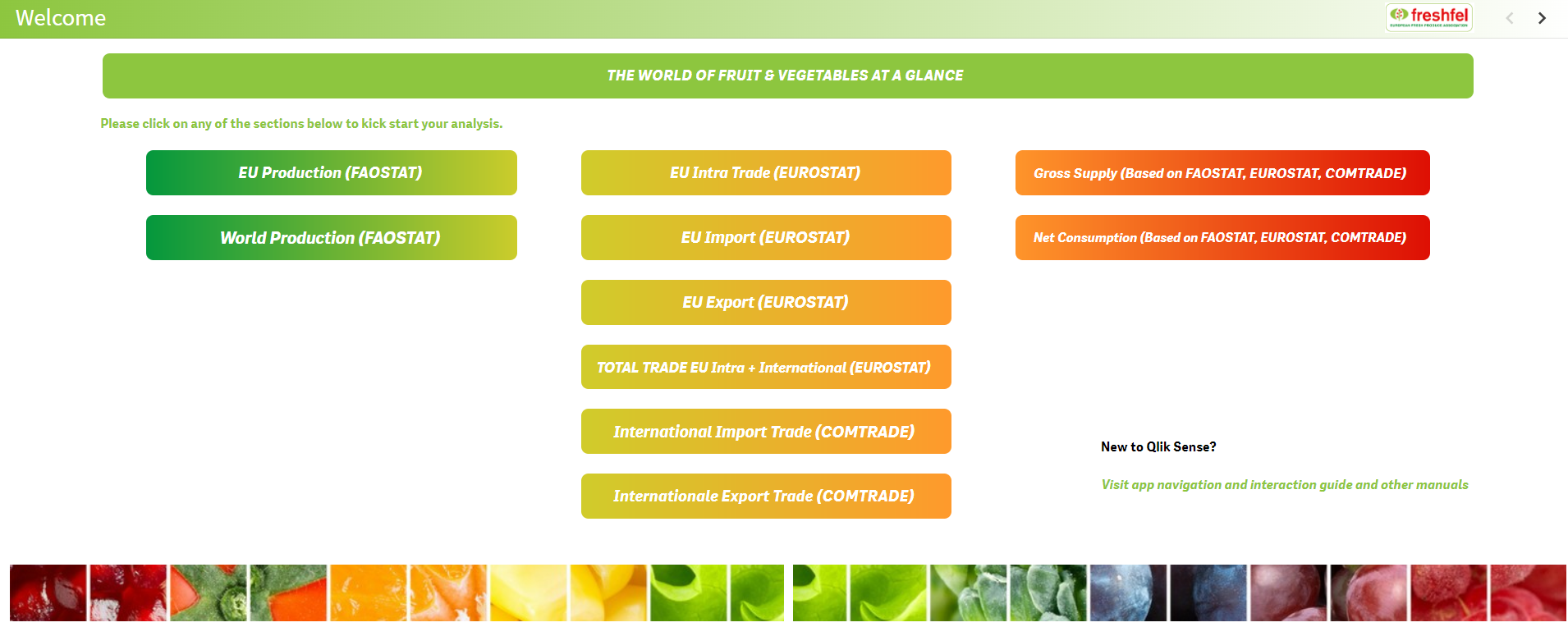
Launch of Freshfel Europe’s updated Statistical Extranet
Freshfel Europe is glad to announce that the new Statistical Extranet is now officially operational. The Freshfel Europe Statistical Extranet provides detailed information on the production, trade, supply, and consumption of fresh fruit and vegetables. Freshfel Europe retrieves the data from FAOSTAT on production and from EUROSTAT and UN Comtrade for intra-EU and global trade. For supply and consumption, Freshfel Europe calculates the consumption values on the basis of the official figures and the methodology used for the Freshfel Europe Consumption Monitor.
The new Statistical Extranet offers a variety of new useful functions, including automatic updates so you always have access to the latest figures, switching between calendar years and seasonal years and the possibility to subscribe to data sets and receive alerts about specific values.
